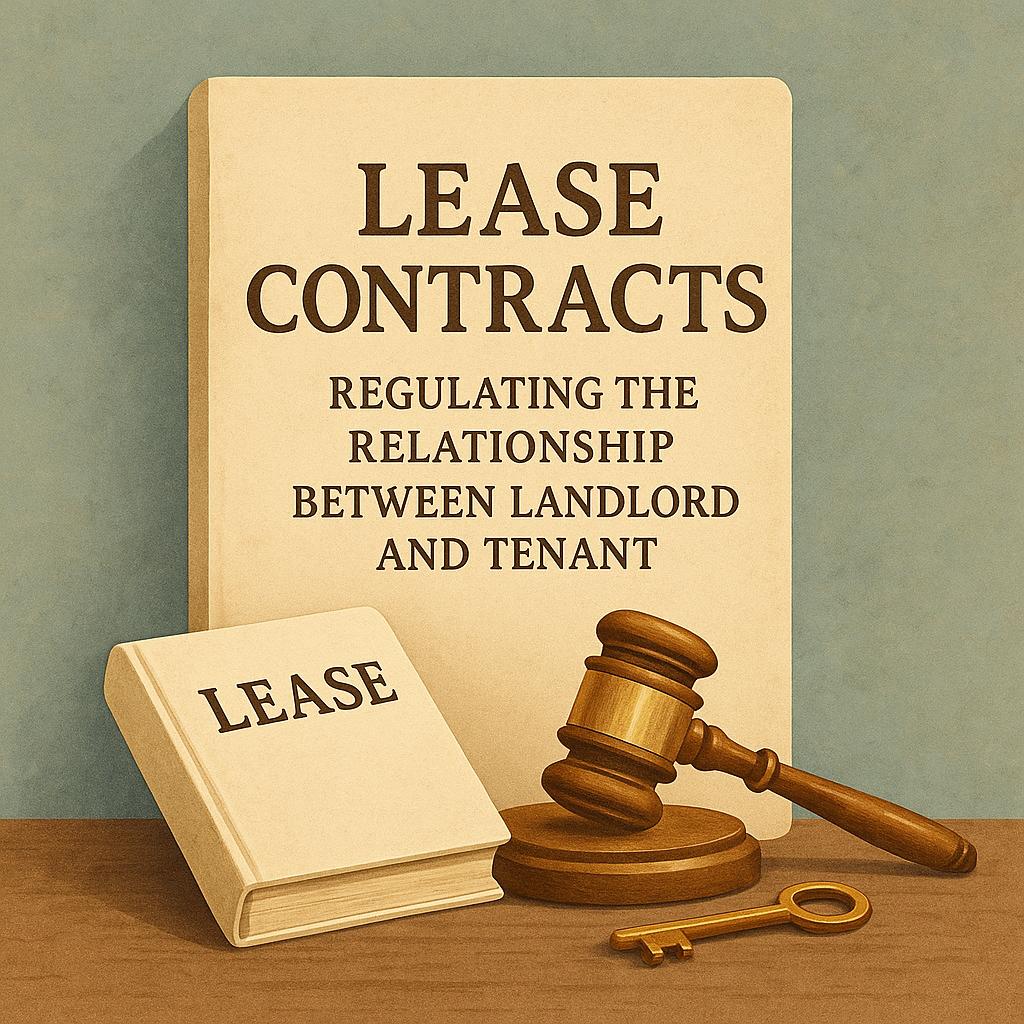



The lease contract is one of the most common types of agreements in everyday life. It governs the relationship between the landlord and the tenant in a way that secures the rights of both parties and defines their obligations clearly. Whether the lease is residential, commercial, or agricultural, having a written legal contract is essential for ensuring stability and avoiding disputes.
In the United Arab Emirates, legislators have paid special attention to lease contracts, especially in light of urban and population growth. Several laws and regulations have been issued to organize this relationship, with a focus on maintaining balance between the landlord’s interests and the tenant’s right to proper use or housing.
A lease is an agreement between two parties in which one party (the tenant) is granted the right to use a property owned by the other party (the landlord) for a specific period and in return for a defined rent, with both parties committing to the agreed-upon terms.
Types of Lease Contracts:
1. Residential lease – for apartments, villas, and housing units.
2. Commercial lease – for shops, offices, and business establishments.
3. Agricultural or industrial lease – for land use in farming or for setting up industrial facilities.
According to the UAE Civil Code, a lease contract must include:
• Mutual consent between both parties.
• Clear identification and deion of the leased property.
• The agreed rent and lease duration.
• Defined obligations for each party.
Lease agreements are regulated by Federal Law No. 5 of 1985 (UAE Civil Code), and by Dubai Law No. 26 of 2007 (as amended) concerning the relationship between landlords and tenants. These laws address:
• Landlord’s rights and obligations – such as delivering the property in good condition and not interfering with the tenant’s use.
• Tenant’s rights and obligations – such as paying rent on time, using the property as agreed, and avoiding damage.
• Termination of contract – in case one party breaches the agreement.
• Renewal or expiration – according to the agreed terms.
Despite clear legal texts, some challenges still arise, including:
1. Vague terms or absence of a written agreement.
2. Delays in rent payments by tenants.
3. Landlord abuse or unfair eviction demands.
4. High rental rates in certain areas.
A lease is not just a legal document – it’s a practical tool for protecting both parties and ensuring fairness in the real estate market. As urban development continues in the UAE, commitment to legal contracts and proper documentation remains the best guarantee of rights and a key to minimizing conflicts.
Legal References:
• Federal Law No. 5 of 1985 on Civil Transactions.
• Dubai Law No. 26 of 2007 on Regulating the Relationship Between Landlords and Tenants (and its amendments).
• Dubai Land Department: https://www.dubailand.gov.ae
ہماری ثقافت کی پرورش اور جدت طرازی، تخلیقی صلاحیتوں، قانونی مہارت کو حاصل کرنے کی کوشش کی جاتی ہے اور یہ کلائنٹ پر مرکوز ہے۔ روزانہ، ہم اپنے کاروباری ماحول کو بہتر بناتے ہیں۔